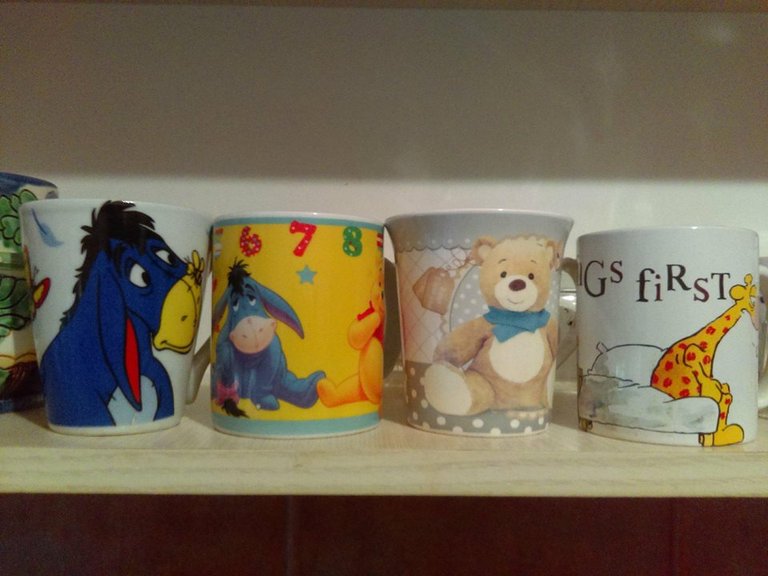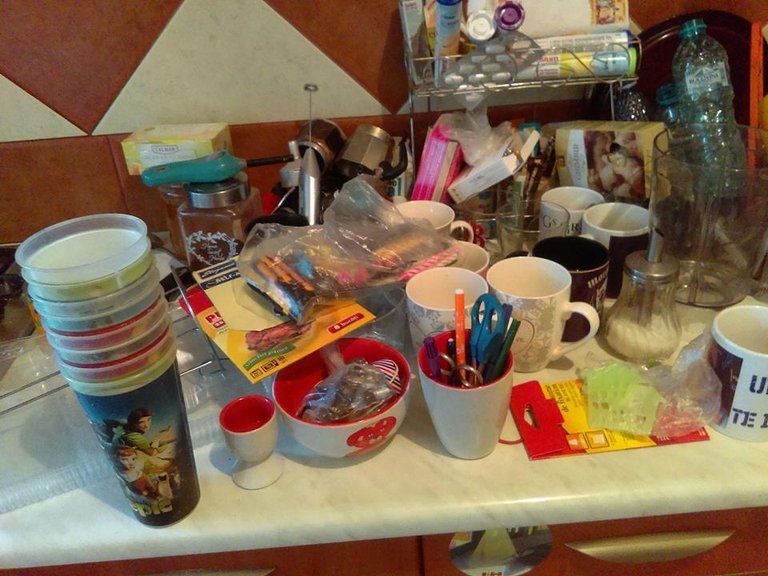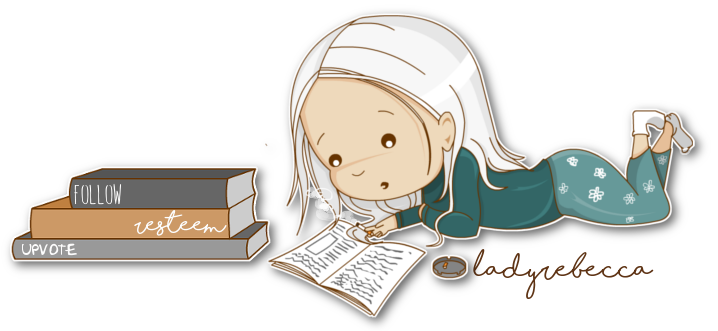It's all fun and games until you become a hoarder – like your mother and your grandmother. Gone are the days when I could make fun with my friends, laughing about our crazy parents who wouldn't throw anything out. Because they might need it someday. Well, I still laugh about this, but not as loud as I used to.
I have cupboards full of stuff I haven't used in years. Yesterday, I made a feeble attempt at clearing up some much needed space. I threw out two-years' worth of bills (hopefully, paid), bottles of vitamins I must have bought five years ago and even one plastic cup! Still usable, too!

The very cute cups in the picture stay! No question about that! My kids loved them at some point in their lives, they have their favorite childhood characters on them – they stay. According to experts, attaching sentimental values to things is a common trick used by hoarders. I have dozens of pictures from our vacation in Italy last year. Also, a couple of bus tickets, tucked in my wallet, just a small reminder I tell myself, even though I know it's a lie.
Our hoarding instincts are based on fear and they're mostly built-in. Not learned from our parents, but inherited from our very remote, even primitive ancestors, Most built-in fear mechanisms are there for a very important reason – survival of the species!
Fear of snakes or spiders make perfect sense from an evolutionary point of view – they can be deadly. Stay away!
Likewise, fear of heights. Falling of a cliff was deadly to our ancestors who had no emergency services to call. A broken leg might be just a temporary inconvenience for us, but a primitive would be left a limping meal for the first tiger who'd come his way.
An interesting experiment about the fear of heights proves we are programmed like this. The experiment involved two tables with a transparent plexiglass platform between them. When small babies were put on one table and encouraged to cross over they wouldn't go anyway near the platform, because they were afraid they might fall. Similarly, kittens placed on the table refused to budge. However, when baby ducks were tested, they had no problem crossing the transparent platform. Maybe because it looked like a body of water, maybe because they can fly so falling was out of the question.

We tend to hoard stuff because we're afraid some day we might need that stuff and we won't afford it. Most of us go through some lean times at one point in our lives and we tend to believe that is the main explanation for the hoarding habit we develop as we grow old. However, psychologists say some fears only kick in later in life.
'One way to look at fears is that there is a “threshold effect”. Some of your fears won’t come out—won’t be manifested---until your brain has matured, certain hormones kick in, and you’ve accumulated enough stress.' (Psychology Today)
Older people are vulnerable and were even more so thousands of years ago, when resources were scarce. Naturally, the food would go to the able-bodied adults who could hunt and defend the tribe, not to the old and useless.
Surely, our primitive ancestors did not have cupboards full of useless cups, but the mechanism is the same. I might needed it. Like the horrible big winter-coat I haven't worn in twenty years. I keep it hidden in a suitcase and don't even think I'm going to dig it out just for a picture. I have other winter jackets, but that one is long and warm – who knows when a terrible winter might come and I might want to wear it. That's a survival instinct!
Thankfully, the food-hoarding instinct hasn't kicked in yet, but looking at my mother I'm pretty sure it will. Now I shake my head in despair every time my mother asks that I pack for her that piece of leftover bread on the table. Not a slice, a small piece, mostly crust. I know she doesn't actually need it and I resent it when she calls me wasteful, but I suspect there's nothing she ca do about it. In our primitive past, the old and frail were a burden, they were expandable, nobody was going to waste resources on them.
For now, I'm happy to say I have managed to clear up some space. Non-essential stuff, obviously. If there's ever a worldwide shortage of rubber bands, plastic water bottle tops or little bits of pencils, feel free to contact me – I have plenty of them stored.
Thanks for reading

My grandmother even hid some of the food at the end. She mostly hoarded food...not so much the items. But yeah ... you would find food in all sorts of nooks...in a way it was quite disturbing.
I am going in the other direction. Stuff suffcates me and makes me feel crowded. But one thing is the same ... obsessions tend to spiral no mater in what directions. saying that while looking at a full bag of clothes i'm about to trash or give away (not to mention I went through all the wardrobes just 3 months ago).
WARNINGCONFIRMED SCAM!
DO NOT FOLLOW any instruction and DO NOT CLICK on any link in the comment! - The message you received from @sabns is a
For more information, read this post:
https://steemit.com/steemit/@arcange/phishing-site-reported-tpm-rotator
If you find my work to protect you and the community valuable, please consider to upvote this warning or to vote for my witness.
The primitive people fear that they are afraid of them, they do not understand
traveling for 3 decades knocks that out of you. (I'm not sure I was ever a hoarder anyway).
2 days old bread counts as an item of sentimentality for me! lol